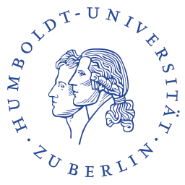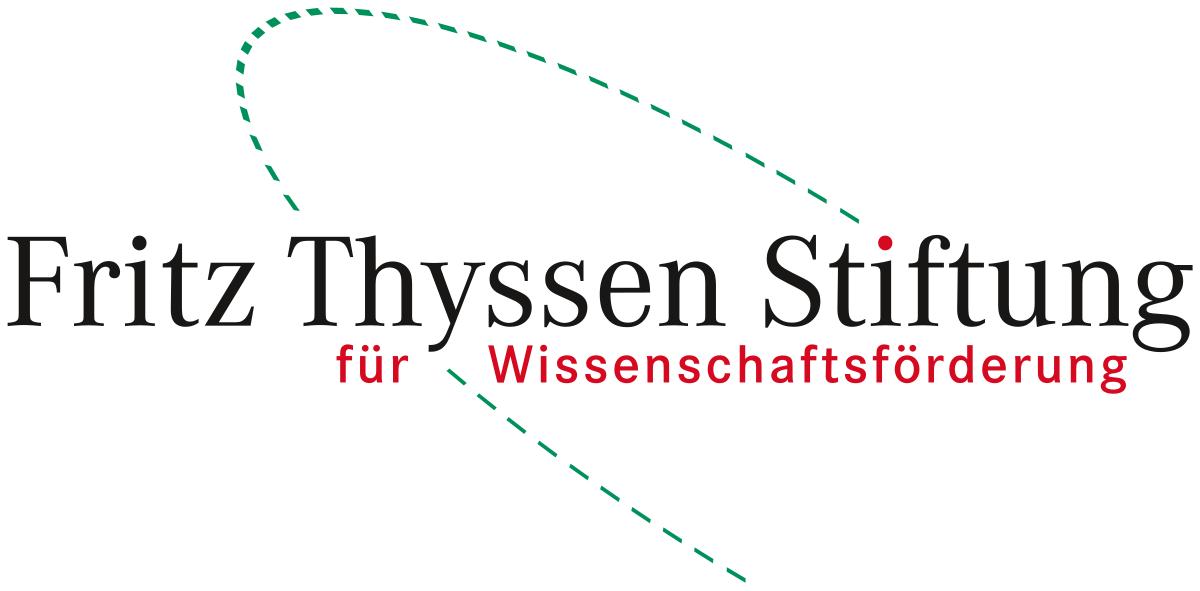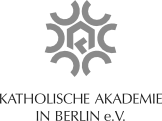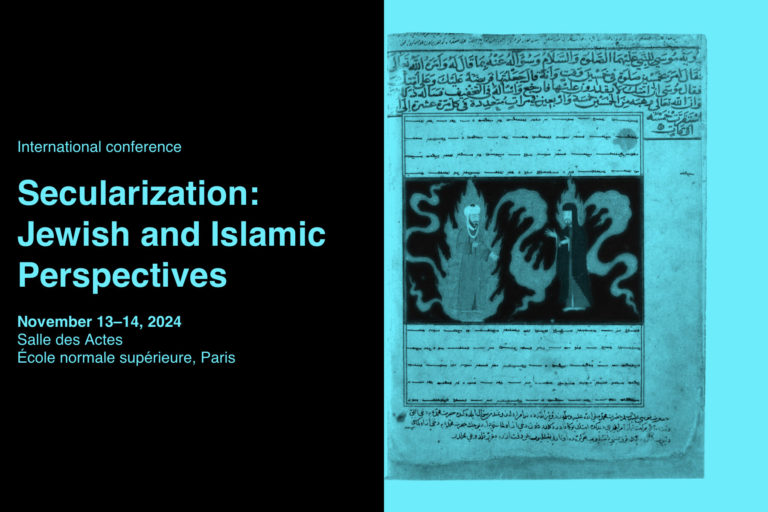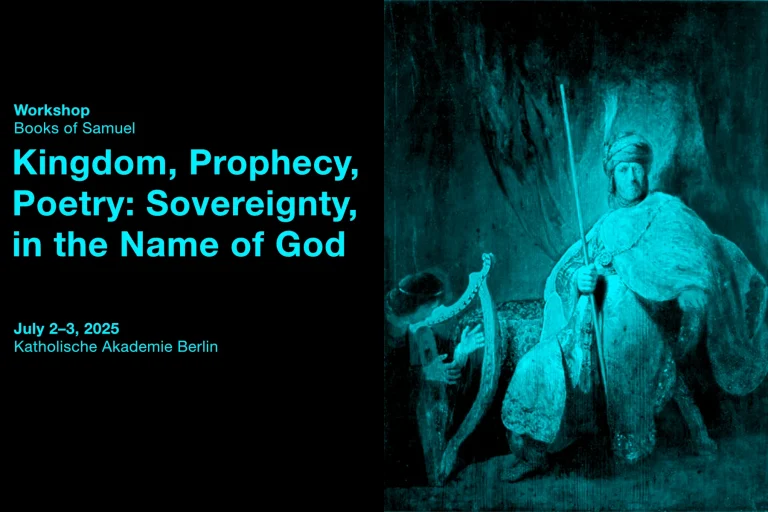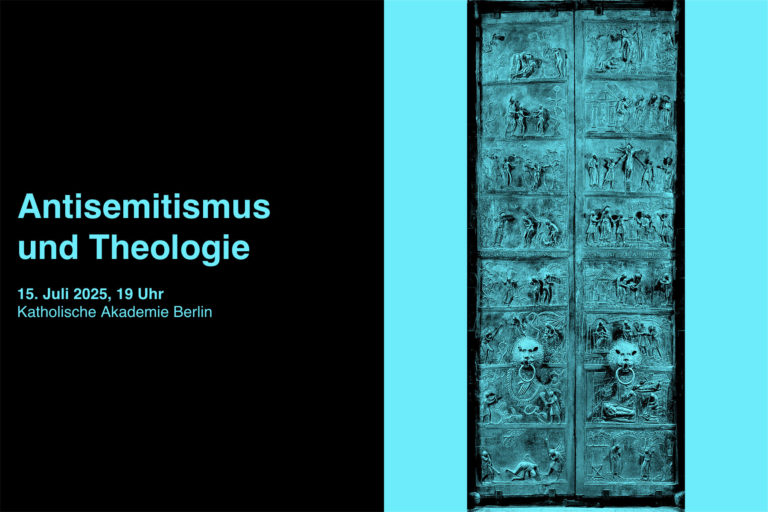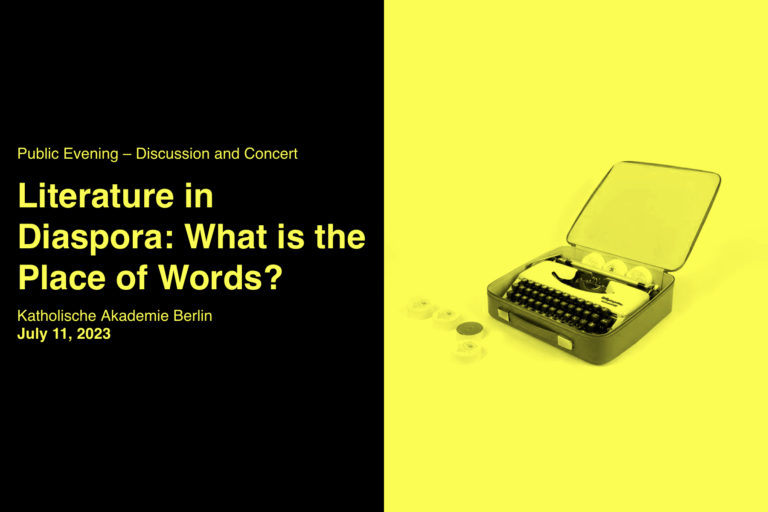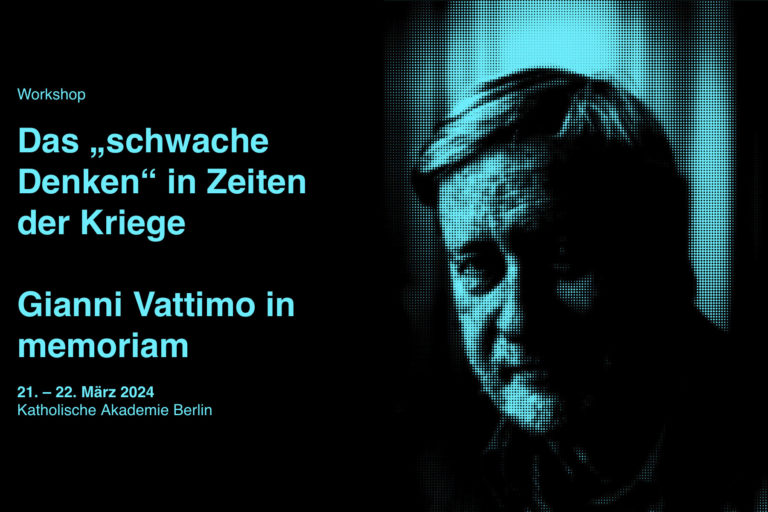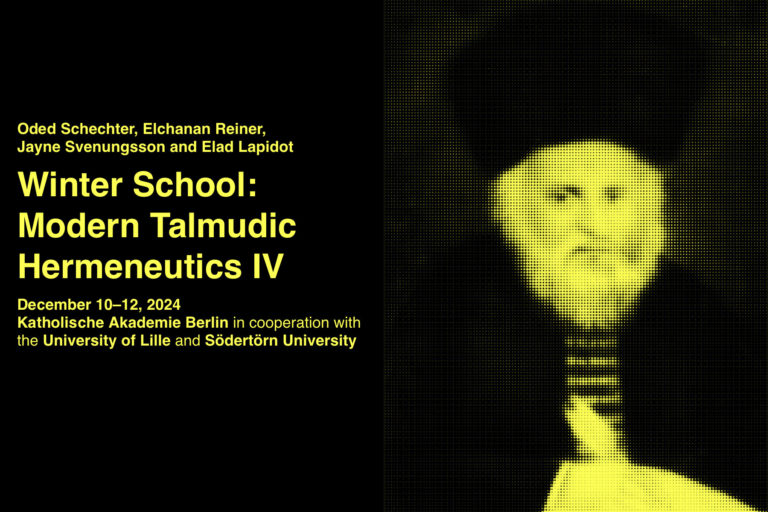International Conference
Between State and Exile:
Rethinking Jewish Politics
June 23–26, 2024, Katholische Akademie Berlin
Photo © Benyamin Reich
Between State and Exile: Rethinking Jewish Politics
International Conference
June 23–26, 2024
Katholische Akademie Berlin
The modern project of a Jewish nation-state has been contested from its inception – first and foremost by Jews. Insofar as this project signified the end of the Jewish condition of statelessness, namely shlilat hagalut, the negation of exile, which was the foundational condition of Jewish existence throughout history, many feared that the Jewish sovereign state would be the end of Judaism. Critics argued that the focus on statecraft and security might overshadow the moral and intellectual values that had been integral to Jewish identity in the diaspora.
The evolving political landscape of Israel has, over the years, accentuated questions raised by Jewish thinkers. Israel/Palestine, marked by ongoing injustice, state violence, dispossession, occupation, destruction and mass killings, has been a source of deep moral and ethical concerns. This conference has been in development for many months, yet, recent extreme violence heightens the necessity of a discussion about the present and future of Zionism.
In view of this foundational inversion, contemporary Jewish thinkers are considering whether the preservation of Judaism demands a reassessment of Jewish politics. This conference brings together leading voices in this current conversation to discuss the various aspects and meanings of this perspective. More specifically, the conference will examine the variety of contemporary Jewish views on diaspora and exile. It is an attempt to rethink the entire question of state and statelessness, in the Jewish context, while revisiting affirmative approaches to exile in biblical, rabbinic and kabbalistic sources.
The following themes and questions will be central to the discussions:
The Current and Future Situation of Israel and Palestine: An examination of the political, social, and cultural dynamics in the region, including the prospects for peace and justice; Contemporary Jewish Positions: An exploration of the various stances within the Jewish community, including both Zionist and anti-Zionist perspectives; Statelessness and Exile: A consideration of the meanings of statelessness and the relationship between exile and diaspora in the context of contemporary Jewish identity; Broader Political and Theoretical Contexts: How concepts such as colonialism, de-colonialism, neo-liberalism, illiberalism, post-secularism, and race intersect with and inform the discourse on Jewish politics; The Meaning of Galut in Jewish Traditions: An exploration of historical and cultural interpretations of exile in Jewish traditions and how these interpretations inform modern discourse; Inner Jewish Tensions: An examination of the internal divisions and tensions within the Jewish community, such as those between Charedi, modern orthodox, religious Zionist, masorti, and reform currents, or between Ashkenazi and Mizrachi Jews, as well as between Jews in the US, Israel, and Europe.
Organisation
Elad Lapidot (Katholische Akademie Berlin/The University of Lille), Shaul Magid (Dartmouth College), Agata-Bielik Robson (University of Nottingham), Gilad Sharvit (Towson University), Nitzan Lebovic (Lehigh University), Amir Engel (Hebrew University of Jerusalem/Humboldt University Berlin)
Cooperation
Katholische Akademie in Berlin in cooperation with the Humboldt University Berlin, University of Lille, Lehigh University, France 2030, Centre d’Études en Civilisations, Langues et Lettres Étrangères, Lehigh University Berman Center, Fritz Thyssen Stiftung, Östersjöstiftelsen, and the Södertörn University
Livestream on Youtube
The streaming will be active for the non public conference & for the public evening lectures
June 23, 16:30
Section I, Public Lecture
June 24, 10:00
Section II + III, Public Lecture
June 25, 10:00
Section IV + V + VI, Public Lecture
June 26, 10:00
Section VII + VIII, Conclusion
Program
Please note that only the evening lectures are open to the public
| Sunday, June 23 | |
| 16:30–17:00 | Greetings, Opening Remarks |
| Section I | |
| 17:00–18:30 | Moderator: Amir Engel (Hebrew University of Jerusalem/Humboldt University Berlin) Agata-Bielik Robson (University of Nottingham): On Advantages and Disadvantages of Diaspora for Jewish Life Nitzan Lebovic (Lehigh University): German-Jewish Thinkers: The Time of Exile |
| Public Lecture | |
| 19:00–20:30 | Moderator: Shaul Magid (Dartmouth College) Amnon Raz-Krakotzkin (Ben Gurion University): The Question of Israel and the Urgency of Binational Thinking Lena Salaymeh (University of Oxford/École Pratique des Hautes Études, Paris): Decolonizing Jewish Politics: The Coloniality of Jewish-Muslim Coupling |
| 20:30 | Reception |
| Monday, June 24 | |
| Section II | |
| 10:00–11:30 | Moderator: Abeer Khshiboon (Humboldt University Berlin) Adi M. Ophir (Brown University): From Anti-Zionism to No-State Politics Elad Lapidot (University of Lille): Haifa. Memories of Jewish-Palestinian Futures |
| 12:00–13:30 | Moderator: Jacob Levi (University of Lille) Zahiye Kundos (Simon Dubnow Institut für jüdische Geschichte und Kultur): Jewish Side Eye to Egypt. Yael Almog (Durham University): Exile in Zion: Margarete Susman and Else Lasker-Schüler’s Political Theology. |
| Section III | |
| 15:00–16:30 | Moderator: Nitzan Lebovic (Lehigh University) Ghilad H. Shenhav (LMU Munich): Zionism, Talmud, and the Negation of Exile: A Reconsideration. Jessica Carr (Lafayette College): Diasporic Pluralism: Desirable and Undesirable Fragmentation in the Post-Imperial Age |
| 16:30–18:00 | Guided Tour in Berlin by Yael Attia (University of Paderborn) |
| Public Lecture | |
| 18:30–20:00 | Moderator: Gilad Sharvit (Towson University) Atalia Omer (University of Notre Dame): How Does Palestinian Scholarship Contribute to Rethinking Jewish Politics? Julie Cooper (Tel Aviv University): The Political Lessons of Jewish Emancipation: From Europe to America |
| Tuesday, June 25 | |
| Section IV | |
| 10:00–11:30 | Moderator: Lena Salaymeh (University of Oxford/École Pratique des Hautes Études, Paris) Amir Engel (Hebrew University of Jerusalem/Humboldt University Berlin): Exile Homecoming and Gershom Scholem: A Case Study Gilad Sharvit (Towson University): Struggling with Zionism: On German Jewish Thought |
| Section V | |
| 12:00–13:30 | Moderator: Agata-Bielik Robson (University of Nottingham) Gil Anidjar (Columbia University): Was sind Juden? Oded Schechter (Makhloykes Berlin): Is Jewish Politics Still Possible? |
| Section VI | |
| 15:00–16:30 | Moderator: Sina Rauschenbach (University of Potsdam) Menachem Lorberbaum (Tel Aviv University): License to Kill and be Killed – On Religious Ideologies of Bloodshed Daniel Weiss (Cambridge University): Bloodshed, Assimilation, and the Political Realism of Exile: The Prioritization of Ethics over Statehood in Abraham Isaac Kook and Eliezer Berkovits. |
| Public Lecture | |
| 17:00–18:00 | Artist Talk with photographer Benyamin Reich and writer Deborah Feldman Music performance by singer Eva Glasmacher |
| 19:00–20:30 | Moderator: Miriam Rurüp (Universität Potsdam) Daniel Boyarin (UC Berkeley): Josephus against the zionots. Josephus as a model for Jewish political thinking Response: Hannah Tzuberi (Freie Universität Berlin) |
| Wednesday, June 26 | |
| Section VII | |
| 10:00–11:30 | Moderator: Ido Harari (Van Leer Jerusalem Institute) Shaul Magid (Dartmouth College): Nationality and Diaspora Nationalism: Reading Daniel Boyarin though Louis Brandeis Annabel Herzog (University of Haifa): Should Anyone Feel at Home? The Critique of Sovereignty in Di Cesare’s “Resident Foreigners” and Boyarin’s “The No-State Solution” |
| Section VIII | |
| 12:00–13:30 | Moderator: Elad Lapidot (University of Lille) Anoush Ganjipour (CNRS-Ecole normale supérieure): Politics of Exile / Exile from Politics: Some Reflections on the Islamic Idea of Exile Ariella Aïsha Azoulay (Boston University): Which Exile are You Talking About? What Europe Did to Us, Jews, Muslims, Arabs |
| 15:00–16:00 | Concluding Discussion |
Participants
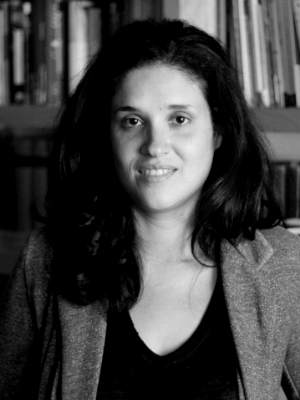
Yael Almog is an Associate Professor at the School of Modern Languages at Durham University. She studies amalgamations of religion and political theory in modernity. Almog’s monograph Secularism and Hermeneutics (2019) argues that literary theory facilitated the emergence of the Bible as a universal cultural artefact. Her more recent work centers on literary and artistic works that celebrate European culture – German in particular – as a boon for Jewish collective identity.
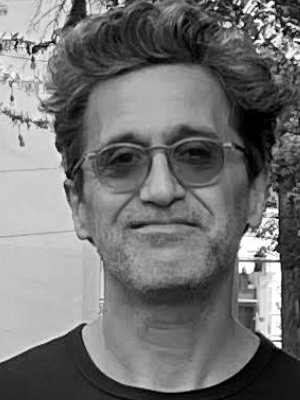
Gil Anidjar teaches in the Department of Religion and the Department of Middle Eastern, South Asian, and African Studies at Columbia University. His main contributions to the political theology debates are found in The Jew, the Arab: A History of the Enemy (Stanford UP, 2003) and in Blood: A Critique of Christianity (Columbia UP, 2014).
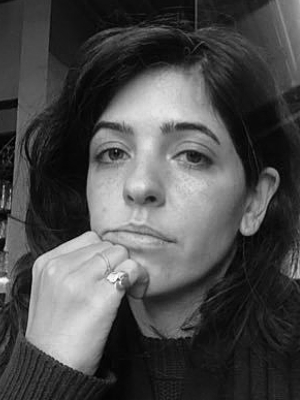
Yael Attia is a doctoral fellow at the RTG Minor Cosmopolitanisms. In her current project, The (post)colonial Other of Modern Jewish Thought, she seeks to trace the constitutive role of Jewish colonial experiences in North Africa as formative to modern Jewish political thinking, as it emerged in a series of Francophone intellectuals: Hélène Cixous, Albert Memmi and Jacques Derrida. She also hosts the official podcast of her program. An edited volume she co-edited, titled: Minor Perspectives on Modernity: Jewish Studies and Decolonial Thought is forthcoming from Nomos Verlag.
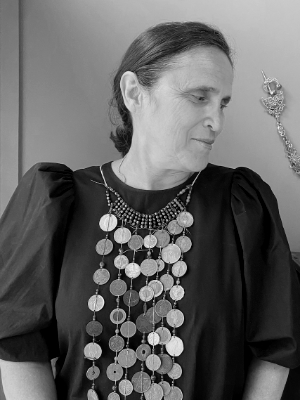
Ariella Aïsha Azoulay teaches at Brown University political theory from an anti-colonial perspective, using photography and material culture to study onto-epistemological violence in institutions and technologies like museums and archives. Potential history and unlearning imperialism are key concepts and an approach that she has developed over the last decade, concepts having far-reaching implications for the fields of political theory, archival formations, museum and photography studies. She is also an independent curator and a film essayist. Her books include: The Jewelers of the ummah – Potential History of The Jewish Muslim World (Verso 2024), Collaboration – A Potential History of Photography (co-edited with W. Ewald, S. Meiselas, L. Raiford, L. Wexler, T&H, 2023), Potential History: Unlearning Imperialism (Verso Books, 2019), Civil Imagination: The Political Ontology of Photography (Verso Books, 2012), The Civil Contract of Photography (Zone Books, 2008), and From Palestine to Israel: A Photographic Record of Destruction and State Formation, 1947–1950 (Pluto Press, 2011). Among her films: The world like a jewel in the hand – Unlearning Imperial Plunder II (2023), Un-documented: Unlearning Imperial Plunder I (2019) and Civil Alliances, Palestine, 47–48 (2012). Among her exhibitions: Errata (Fundació Antoni Tàpies, Barcelona, 2019; HKW, Berlin, 2020), and The Natural History of Rape (Berlin Biennale, 2022).
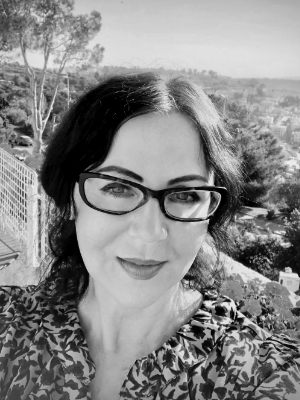
Agata Bielik-Robson is a Professor of Jewish Studies at the University of Nottingham and a Professor of Philosophy at the Polish Academy of Sciences. She works on philosophical aspects of psychoanalysis, romantic subjectivity, and Jewish philosophical theology. Her publications include books: The Saving Lie. Harold Bloom and Deconstruction (Northwestern University Press, 2011), Judaism in Contemporary Thought. Traces and Influence (coedited with Adam Lipszyc, Routledge 2014), Philosophical Marranos. Jewish Cryptotheologies of Late Modernity (Routledge 2014), Another Finitude: Messianic Vitalism and Philosophy (Bloomsbury, 2019), and Derrida’s Marrano Passover. Exile, Survival, Betrayal and the Metaphysics of Non-Identity (Bloomsbury, 2023).
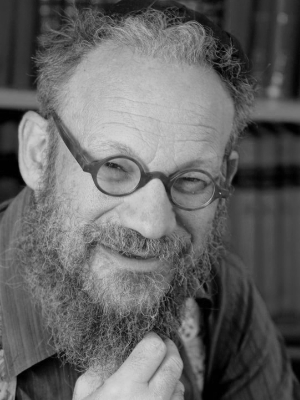
Prof. Daniel Boyarin is Taubman Professor of Talmudic Culture and rhetoric, UC Berkeley, ret. He has been an NEH Fellow (twice), a Guggenheim Fellow, a Fellow of the Institute for Advanced Studies in Jerusalem, a holder of the Berlin Prize at the American Academy in Berlin and a Ford Foundation Fellow. He spent the academic year 2012–2013 as a fellow of the Wissenschaft Kolleg in Berlin and was a von Humboldt Forschung Preisträger at the FU Berlin in 2017. He is a fellow of the American Academy of Arts and Sciences since 2006.
Boyarin has written extensively on talmudic and midrashic studies, and his work has focused on cultural studies in rabbinic Judaism, including issues of gender and sexuality as well as research on the Jews as a colonized people, and lately, colonizing people. His most recent research interests centered primarily around questions of the relationship of Judaism and Christianity in late antiquity and the genealogy of the concepts of “religion” and “Judaism.” Lately he has been thinking extensively about diaspora as a political/cultural ideal. His most recent book is The No-State Solution: a Jewish Manifesto, Yale University Press, 2023.
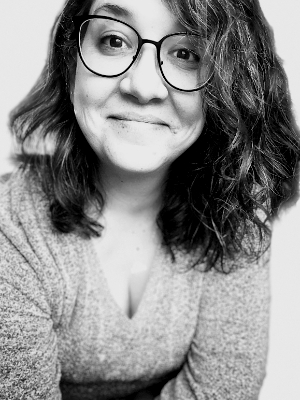
Jessica Carr is the Berman Scholar of Jewish Studies and an Associate Professor of Religious Studies at Lafayette College in Easton, PA. Carr’s first book, published with SUNY Press in 2020, is titled The Hebrew Orient: Palestine in Jewish American Visual Culture, 1901-1938. Carr is currently working on a manuscript titled Exile on Main Street: Incarceration and Police States in Black and Jewish Graphic Novels and Visual Culture from Slavery to the Holocaust.
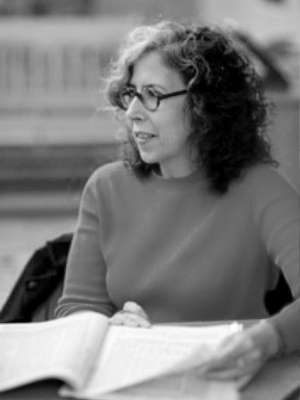
Julie E. Cooper is senior lecturer in the Department of Political Science at Tel Aviv University, where she teaches the history of political theory and modern Jewish thought. She is the author of Secular Powers: Humility in Modern Political Thought (Chicago, 2013) and the co-editor (with Samuel H. Brody) of The King Is in the Field: Essays in Modern Jewish Political Thought (UPenn, 2023).
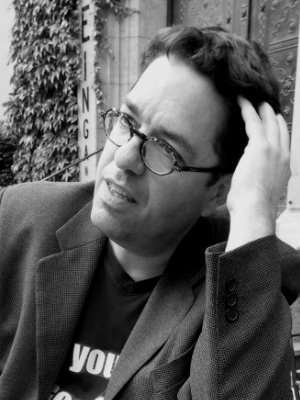
Hagai Dagan is an Israeli author and scholar. He completed his studies at Tel Aviv and Freiburg Universities, specializing in Jewish thought and philosophy. Dagan obtained his PhD from Tel Aviv University.
Currently, Dagan serves as the head of the Israeli Culture Program at Sapir College located in Israel.
Dagan has published a total of twelve books, which encompass various genres. Among these, four are non-fiction works, seven are novels, and one is a poetry book. His writings often delve into Jewish myth, fantasy, history, demonology, and their intersections with everyday life, politics, and identity.
Among his nonfiction books: The Other God (Am Oved, 2016), Jewish Demons (Tel Aviv University Press, 2019), Jewish Mythology (Mapa, 2003)
Among his novels: Demons on Agrippa Street (fantasy novel; Zmora Bitan, 2012), Nightingale (espionage thriller; Pardes, 2020), Call of the North (youth novel; Petel, 2023).
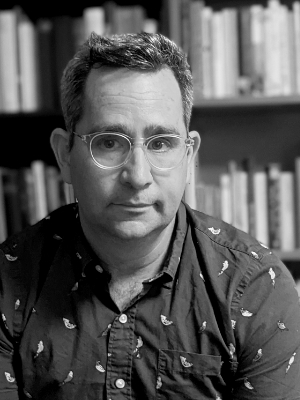
Amir Engel is a lecturer at the German department. He is currently also a guest professor at the Faculty of Theology at Humboldt University in Berlin. He studied philosophy, literature, and culture studies at Hebrew University and completed his Ph.D. in the German studies department at Stanford University. After that, he taught and conducted research at the Goethe University in Frankfurt am Main. His main topics of interest include German Romanticism and German postwar literature and culture, theories of myth, literature, philosophy, and history of culture. His first book Gershom Scholem: an Intellectual Biography came out in 2017. He also published essays about Hannah Arendt, Paul Celan, Martin Buber, Jacob Taubes, Salomon Maimon, and others. These days, he is finishing his second book manuscript, temporarily titled The German Spirit from its Jewish Sources: Occultism as a Jewish-Christian-German Negotiation.
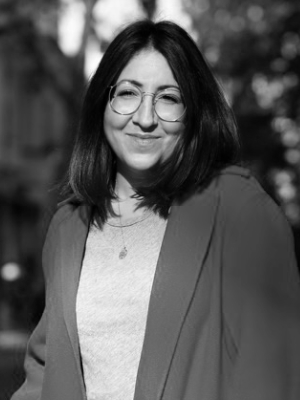
Deborah Feldman is the author of Unorthodox, the basis for the emmy-award winning netflix series, and most recently, in German, Judenfetisch, a long-form essay on the vulnerability of post-war jewish identity and its resulting political and cultural instrumentalization. She is based in Berlin, where she is a persistent critic of the sacralization of German-Israeli relations and political philosemitism.
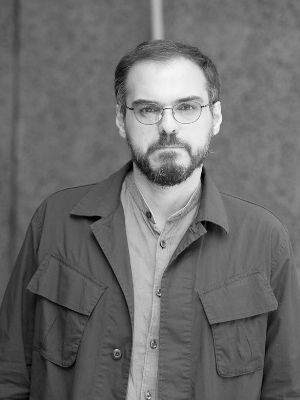
Anoush Ganjipour is a permanent researcher on philosophy at the Centre National de Recherche Scientifique (Centre Jean Pépin-École Normale Supérieure, Paris). He is a specialist in Islamic thought and comparative philosophy. His last monography focuses on Islamic political theology: L’ambivalence politique de l’islam : pasteur ou Léviathan ? (Seuil, 2021) He has recently edited the following books: Politique de l’exil. Giorgio Agamben et l’usage de la métaphysique (Éditions Lignes, 2019) Monothéismes et politique : modernité, sécularisation, émancipation (CNRS Éditions, 2022)
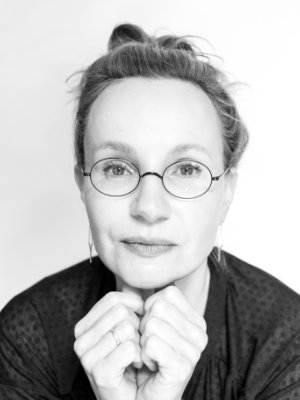
Eva Glasmacher is a classically trained singer. She grew up in Göttingen in a musical family, played the violin and piano and experimented with her voice from an early age. What began as a playful curiosity developed into a fervent desire to learn more. So she moved to Munich to study at the Music Academy with Professor Reri Grist. As a freelance singer, she worked together with various international artists and institutions, which inspired her to develop many musical facets.
Eva Glasmacher also teaches singing. In her holistic concept, she works on posture, breath and resonance and experiments with sound and expression. She incorporates elements from the language of Gaga Movement.
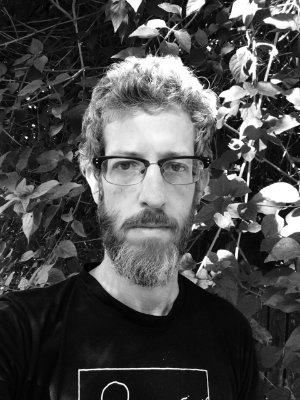
Ido Harari studies modern Jewish thought in its religious and political contexts. His main research interests are Haredi thought, the thought and history of Jews in German-speaking sphere and in Eretz Israel/Palestine, relations between Jewish life and thought and Muslim and Christian life and thought, Secularism, and critique of Secularism. Ido works at the Sacredness, Religion and Secularization research cluster at the Van Leer Jerusalem Institute.
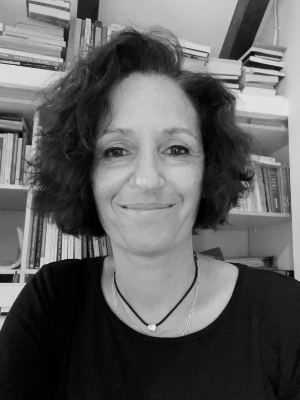
Annabel Herzog is Professor of Political Theory at the School of Political Science at the University of Haifa, Israel. Her research focuses on 20th-century continental philosophy, exploring the connections between ethics and politics and between philosophy and literature. She has contributed numerous essays on ethics, politics, and hermeneutics. She is the editor of Hannah Arendt: Totalitarisme et banalité du mal (Paris: Presses Universitaires de France, 2011); the author of Penser autrement la politique (Paris: 1997), and of Levinas’s Politics: Justice, Mercy, Universality (Philadelphia: University of Pennsylvania Press, 2020), which was the recipient of the 2021 Jordan Schnitzer Book Award in Philosophy and Jewish Thought.
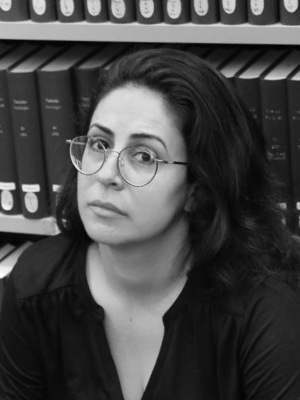
Abeer Khshiboon is a doctoral candidate in theology at the Humboldt University of Berlin, researching the historical trauma of internally displaced Palestinians. She comes from backgrounds in political theology, Jewish studies, education, and psychology. Her interests revolve around oral traditions of Indigenous peoples, decolonial theories and methods, memory studies, and the infrapolitics of the rightless.
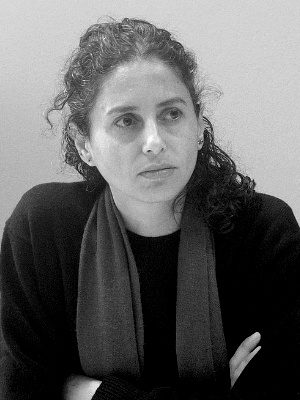
Zahiye Kundos is a literary scholar, specializing in modern Arabic literature, Islamic reform movements, and Arab intellectual history. She completed her PhD in Literature at the School of Cultural Studies at Tel Aviv University. Since 2020 she lives and works in Berlin; was a post-doctoral fellow of the Minerva Foundation, the Forum Transregionale Studien (Europe in the Middle East, the Middle East in Europe), and a visiting scholar affiliated with the Seminar für Semitistik und Arabistik at Freie Universität. She is currently a research associate at the Leibniz Institute for Jewish History and Culture, Simon Dubnow, in Leipzig.
Zahiye is interested in revealing how authors and intellectuals write about Islam in modernity. She is the author of “Amīna and the Breaking of the Secular Silence: Revisiting The Cairo Trilogy by Naguib Mahfouz” (Political Theology, 2024) and “Beginnings, Belongings and Political Anxieties” (Political Theology, 2023).
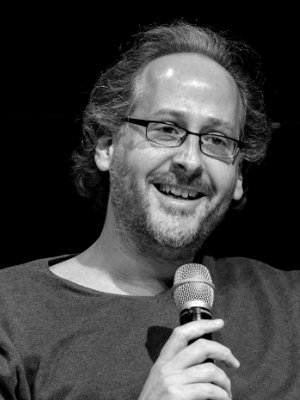
© Ruthe-Zuntz
Elad Lapidot is professor for Culture Studies at the University of Lille, France. He specializes in philosophy, Jewish thought and Talmud and was teaching at the University of Bern, Switzerland, the Humboldt Universität Berlin and the Freie Universität Berlin. His work is guided by questions concerning the relation between knowledge and politics. Among his publications: Jews Out of the Question. A Critique of Anti-Anti-Semitism (SUNY Press, 2020), Hebrew translation with introduction and commentary of Hegel’s Phänomenologie des Geistes, Vol. 1 (Resling, 2020), Heidegger and Jewish Thought. Difficult Others, (Rowman & Littlefield, 2018), and Etre sans mot dire : La logiqe de ‘Sein und Zeit’ (Zeta Books, 2010).

Nitzan Lebovic is a professor of history and the Apter Chair of Holocaust Studies and Ethical Values at Lehigh University. Lebovic is the author of The Philosophy of Life and Death: Ludwig Klages and the Rise of a Nazi Biopolitics (2013), Zionism and Melancholy: The short Life of Israel Zarchi (2019), and Homo Temporalis: Martin Buber, Walter Benjamin, Hannah Arendt, and Paul Celan about Time (Forthcoming, 2024). Nitzan is the co-editor of Catastrophes: The History and Theory of an Operative Concept (2014) and Nihilism and the State of Israel: New Critical Perspectives (2014), and edited special issues about political theology, nihilism, and biopolitics.
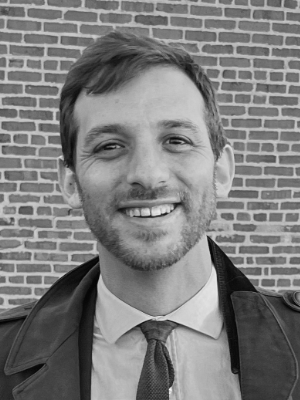
Jacob Levi is a Post-Doctoral Researcher at the Centre d’Études en Civilisations, Langues et Lettres Étrangères at the University of Lille, and Visiting Professor of Teaching in the French and Francophone Department at Connecticut College. His research focuses on questions of language, representation, and translation in 20th century European literature and philosophy, with a focus on Jewish identity in post-war France. Jacob’s current book project, Exile, Adventure, and the Book: Judéité in Post-War French Thought, is an intellectual history of French-Jewish thinkers Emmanuel Levinas, Jacques Derrida, and Edmond Jabès.
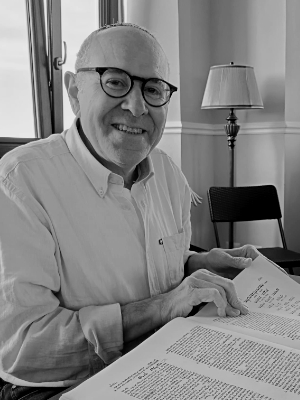
Menachem Lorberbaum is Vice Dean of Humanities and Professor of Jewish Philosophy at Tel Aviv University. He chaired the Graduate School of Philosophy and the Department of Jewish Philosophy at TAU (2004) and was the founding chair of the Department of Hebrew Culture Studies (2004-2008). Prof. Lorberbaum is also a founding member of the Shalom Hartman Institute, Jerusalem where he headed the Bet Midrash program.
Prof. Lorberbaum has just published a study of Hassidism as a model of Jewish religious revitalization in early modernity, Before Hassidism (Bialik Institute 2022). His work in first-order Jewish Theology, I Seek thy Countenance was published by Carmel, Bar-Ilan and the Hartman Institute (2021). He is author of Politics and the Limits of Law (Stanford 2001; Hebrew: 2006) and We are Dazzled by His Beauty (Hebrew, Ben Zvi Institute 2011). Together with Professors Michael Walzer of Princeton and Noam Zohar of Bar-Ilan he is a senior editor of the Jewish Political Tradition series (vol 1 “Authority,” Yale University Press 2000, Hebrew: 2007; vol. 2 “Membership,” Yale University Press 2003, Hebrew: 2018; vol. 3 “Community,” Yale University Press 2018). He is editor of the new and first complete Hebrew translation of Thomas Hobbes’ Leviathan (Shalem 2009).
Lorberbaum’s scholarship focuses on the formation of political and theological discourse and their interaction. Central to his work has been the effort to help create a new political language for the modern day Jewish polity.
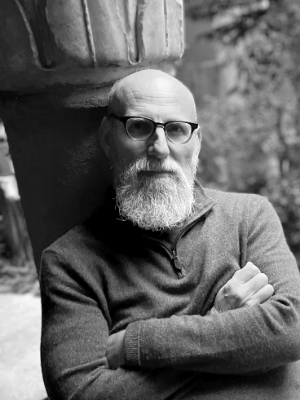
Shaul Magid is a Visiting Professor of Modern Judaism at Harvard University and senior research fellow at The Center for the Study of World Religions at Harvard. His latest book is The Necessity of Exile: Essays from a Distance (Ayin Press, 2023).
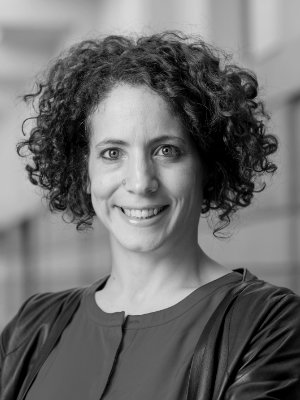
Atalia Omer is a Religion, Conflict, and Peace Studies Professor at the Kroc Institute for International Peace Studies and the Keough School of Global Affairs at the University of Notre Dame. She also recently served as a senior fellow and Dermot TJ Dunphy Visiting Professor at the Religion, Conflict, and Peace Initiative at Harvard University’s Religion and Public Life program. She earned her PhD in Religion, Ethics, and Politics (2008) from the Committee on the Study of Religion at Harvard University. Her research focuses on religion, violence, and peacebuilding, as well as theories and methods in the study of religion. Omer was awarded an Andrew Carnegie Fellowship in 2017, resulting in Decolonizing Religion and Peacebuilding (Oxford University Press, 2023). Among other publications, Omer is the author of When Peace is Not Enough: How the Israeli Peace Camp Thinks about Religion, Nationalism, and Justice (University of Chicago Press, 2015) and Days of Awe: Reimagining Jewishness in Solidarity with Palestinians (University of Chicago Press, 2019). She is also a co-editor of the Oxford Handbook of Religion, Conflict, and Peacebuilding (Oxford University Press, 2015).
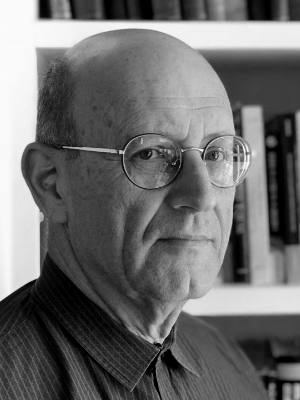
Adi M. Ophir is professor emeritus at Tel Aviv University and a visiting professor at the Cogut Institute for the Humanities and the program for Middle East Studies at Brown University. His recent books include In the Beginning was the State: Divine Violence in the Hebrew Bible (New York: Fordham University Press, 2023); On Ruling Power (Hebrew, Tel Aviv Resling 2022); and with Ishay Rosen Zvi, Goy: Israel’s Multiple Others and the Birth of the Gentile (Oxford 2018), and From Holy Goy to Sabbes Goy (Hebrew, Jerusalem, Carmel 2021).
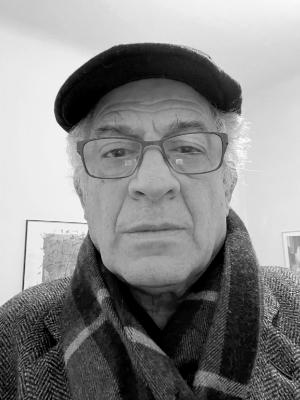
Amnon Raz-Krakotzkin teaches at the department of Jewish history, Ben-Gurion University of the Negev. He was a fellow at the Wissenschaftskolleg zu Berlin and at the Katz Center for Advanced Judaic Studies in Philadelphia. He is a member of the Kollegium of Eume since its beginning. Among his publications: The Censor, the Editor and the Text: Catholic Censorship and Hebrew Literature in the Sixteenth Century (University of Pennsylvania Press, 2007); Exil et Souverainete (La fabrique, 2007). An English version of his recent book Mishna Consciousness, Biblical Consciousness: Safed and Zionist Culture will come out in Brandeis UP next year.
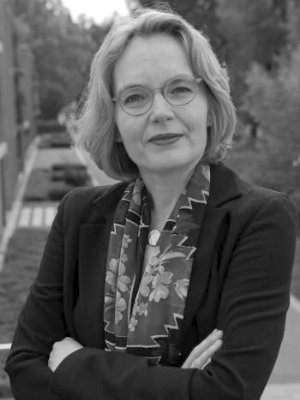
Sina Rauschenbach is Professor for Religious Studies and Jewish Thought at the University of Potsdam. Her research focuses on Medieval and Early Modern Sephardic history and thought, with a special interest in Jewish-Christian relations, Sephardic history, and colonial entanglements in the Atlantic World. She is the author of monographs on Joseph Albo (2002) and Menasseh ben Israel (2012; English 2019), as well as the (co-) editor of volumes on Knowlegde and Power (with Richard van Dülmen, 2004); the Sephardic Atlantic (with Jonathan Schorsch, 2019); Sephardim and Ashkenazim (2020), et al. Sina Rauschenbach studied Mathematics (FU Berlin, 1996), received her PhD in Philosophy (FU Berlin, 2000) and was granted her Venia legendi in Early Modern History (University of Konstanz, 2010). She was awarded prestigious scholarships, among others of the Wissenschaftskolleg zu Berlin (2008-2009) and the Israel Institute for Advanced Studies (IIAS, 2022-2023)..

Benyamin Reich was born in Bnei Brak to a Hassidic family in 1976. At 16, he left the Orthodox community to pursue art. He studied at the Musrara School of Photography in Jerusalem, the École nationale supérieure des beaux-arts in Paris, and the Bezalel Academy of Art. Since 2009, he has lived in Berlin.
Reich’s work seeks to explore lines of conflicts and intersections between the Western world and traditional cultures, combining extremes such as sensuality and spirituality, the sacred and the profane, nature and civilization. His artwork reflects his life as a permanent exile, contemplating motifs of otherness and integrating historical and existential experiences. Photographs from various series of his have been shown in galleries and museums in Israel and across Europe.
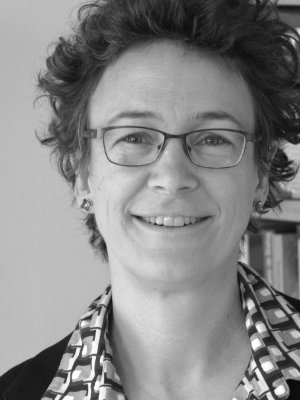
Miriam Rürup is director of the Moses Mendelssohn Center for European-Jewish Studies (MMZ) in Potsdam. Before moving to Potsdam in December 2020 she was director of the Institute for the History of the German Jews in Hamburg and worked as a research fellow at the German Historical Institute in Washington, DC. Since 2020, Miriam Ruerup is also Head of the Academic Working Group of the Leo Baeck Institute in Germany (WAG). Between 2006 and 2010 she was a postdoctoral fellow / assistant professor at the history department of Göttingen University, working on her still ongoing research project, a history of statelessness in Europe after WWI and WWII and the interaction between the supranational discourse on how to deal with statelessness and the every-day experience of statelessness itself. In 2007 she published her doctorate on the history of German-Jewish Student Fraternities in Imperial and Weimar Germany (title: “Ehrensache” with Wallstein-Verlag, Göttingen). Miriam studied history, sociology and cultural anthropology at the universities of Göttingen, Tel Aviv and Berlin. Formerly she worked for the Foundation “Topography of Terror” in Berlin, the Rosenzweig Center in Jerusalem, the Simon Dubnow Institute in Leipzig.
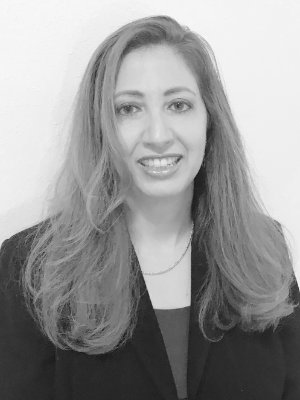
Lena Salaymeh is British Academy Global Professor in the Oxford School of Global and Area Studies (University of Oxford) and Professor in the Section des Sciences Religieuses of the École Pratique des Hautes Études (Paris Sciences et Lettres). Salaymeh is a scholar of law and history, with specializations in Islamic law, Jewish law, and critical theory.
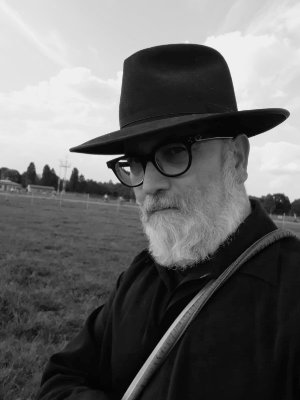
Oded Schechter is a philosopher and talmudist. He lives in Berlin and is the co-founder of the Berlin Makhloykes Center.
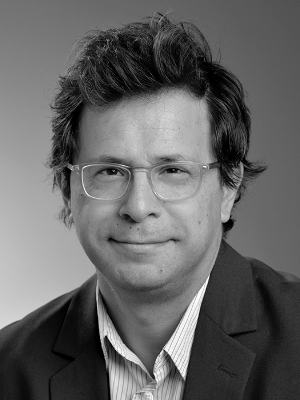
Gilad Sharvit is assistant professor of philosophy and director of the Jewish Studies undergraduate program at Towson University. A scholar of Jewish and continental philosophy, Sharvit’s interests lie in political philosophy, modern Jewish Thought, German philosophy, psychoanalysis, and critical theory. Sharvit is the author of Dynamic Repetition: History and Messianism in Modern Jewish Thought (Brandeis UP, 2022), and Therapeutics and Salvation: Freud and Schelling on Freedom (Magnes Press, 2021) (in Hebrew) and co-editor and contributing author of the volumes Modern Jewish Thought on Crisis (De Gruyter, 2024), Canonization and Alterity (De Gruyter, 2020), and Freud and Monotheism (Fordham UP, 2018).
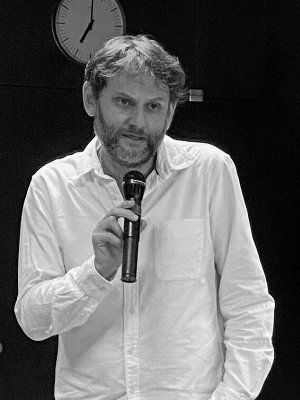
Ghilad H. Shenhav is a research associate (wissenschaftlicher Mitarbeiter) at the Department of History and at the Center for Israel Studies at the Ludwig Maximilian University of Munich. His first book about language, tradition, and gender in the writings of Gershom Scholem will be published in German this summer. Shenhav has written several articles in the fields of modern Jewish thought, literature, and intellectual history, among them: “Jacques Derrida and the Desertification of the Messianic” (Jewish Studies Quarterly, 2022), and Gershom Scholem’s ‘Laments Project’ and the Question of Gender” (Journal of Jewish Studies / 2023), and “The Messiah Waits for you!|”Agency and Politics in the German-Jewish Reception of a Talmudic Tale (Journal of Modern Jewish Studies / 2023). He is also developing his second book project about the reception of the Babylonian Talmud in early Zionism and in Jewish political thought at large.
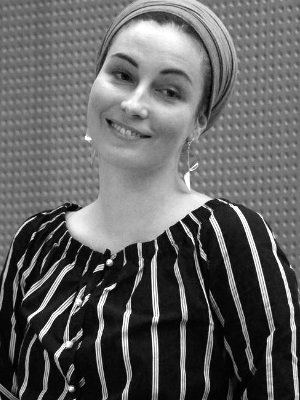
Hannah Tzuberi studied Jewish Studies and Islamic Studies at Freie Universität Berlin and was a research assistant at the Institute for Jewish Studies (FU Berlin). Currently she is a post-doctoral researcher in a collaborative research project “Beyond Social Cohesion. Global Repertoires of Living Together” (RePLITO) at the FU Berlin, directed by Prof. Schirin Amir-Moazami. She is the co-editor of “Jewish Friends: Contemporary Figures of the Jew” (Jewish Studies Quarterly27:2–3, 2020) and is working on a book-project titled “Reviving Judaism, Reviving the Nation: Post-Holocaust Imaginaries of the (German) Nation-State.” Her research interests include Talmud, halakha, and contemporary European Jewry. Her work draws on the critical study of secularism and current discussions related to the co-constitutive relations between Europe, the European subject, and Europe’s racial-religious others.

Daniel H. Weiss is Polonsky-Coexist Senior Lecturer in Jewish Studies, Faculty of Divinity, University of Cambridge. He is author of Paradox and the Prophets: Hermann Cohen and the Indirect Communication of Religion (2012) and Modern Jewish Philosophy and the Politics of Divine Violence (2023), among other publications, and co-editor of multiple books, including Scripture and Violence (2020) and Tsimtsum and Modernity (2021). Actively involved in the Cambridge Interfaith Programme, he is a recent recipient of a Humboldt Research Fellowship for Experienced Researchers.



